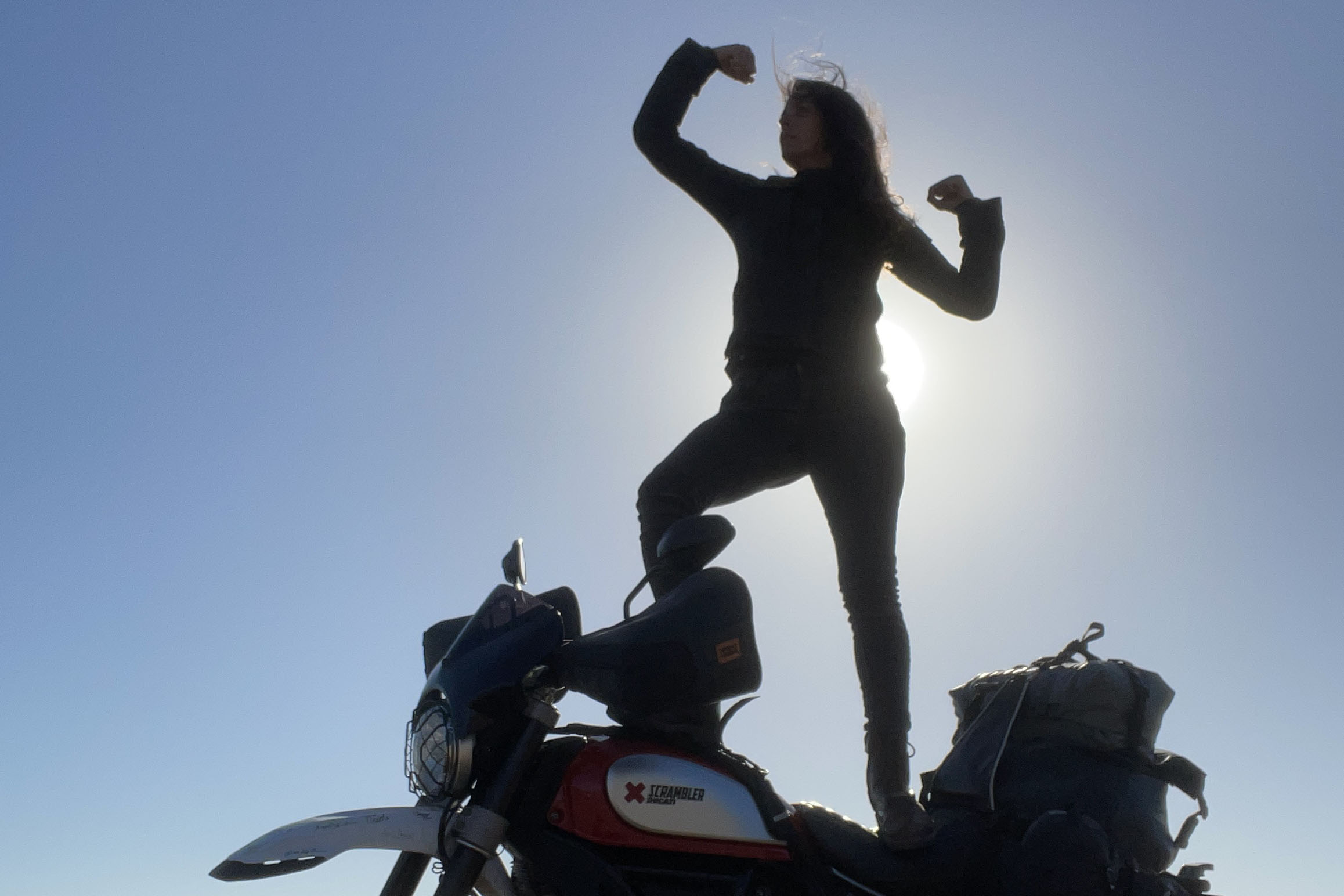How do you combine two seemingly unrelated passions into one cause? Lauren Trantham, a motorcycle-loving entrepreneur and an anti-human trafficking advocate, did just that when she founded Ride My Road.
“I was a motorcyclist for a long time and a photographer when I was going through a divorce,” Trantham said. “This was in 2015, and it was a rock-bottom moment for me, learning that I had actually been in an emotionally abusive relationship. Because I was never hit, I didn’t understand the signs of what abuse can look like.”
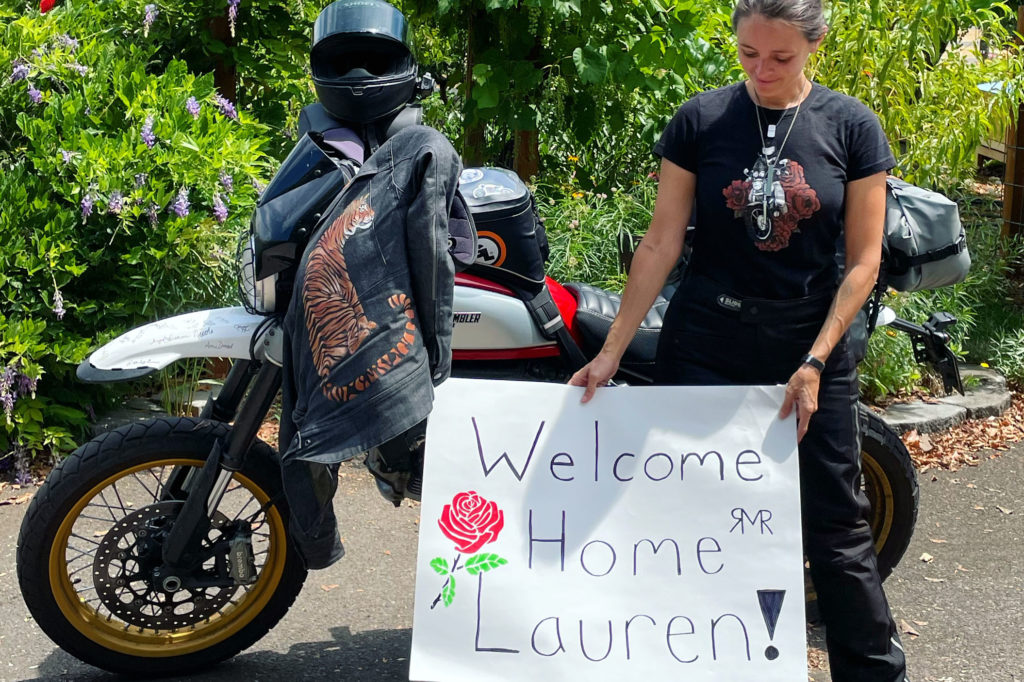
In 2016, having reached a turning point in her life, Trantham embarked on a 10,000-mile solo motorcycle journey across America to photograph survivors of human trafficking.
“I decided that I wanted to use my skills to meet and photograph other people who had experienced abuse,” Trantham explained. “When I originally set out on my bike to photograph survivors as a personal project, I had no idea that it would one day become a nonprofit. What I thought would be a summer project has turned into a national movement.”
Listen to interview with Lauren Trantham on the Rider Magazine Insider Podcast
Through her interactions with survivors and meeting others in the anti-trafficking movement, Trantham found a way to make a difference. Photographing survivors required sensitivity and compassion, and she was very careful to respect their privacy and not use the images in any way that could result in re-exploitation.
“I never asked them about their trafficking story,” she said. “The photoshoots truly are just meant to be a gift, with nothing in exchange. I’ve photographed over 80 survivors so far, and the portraits are something that I continue to do.”
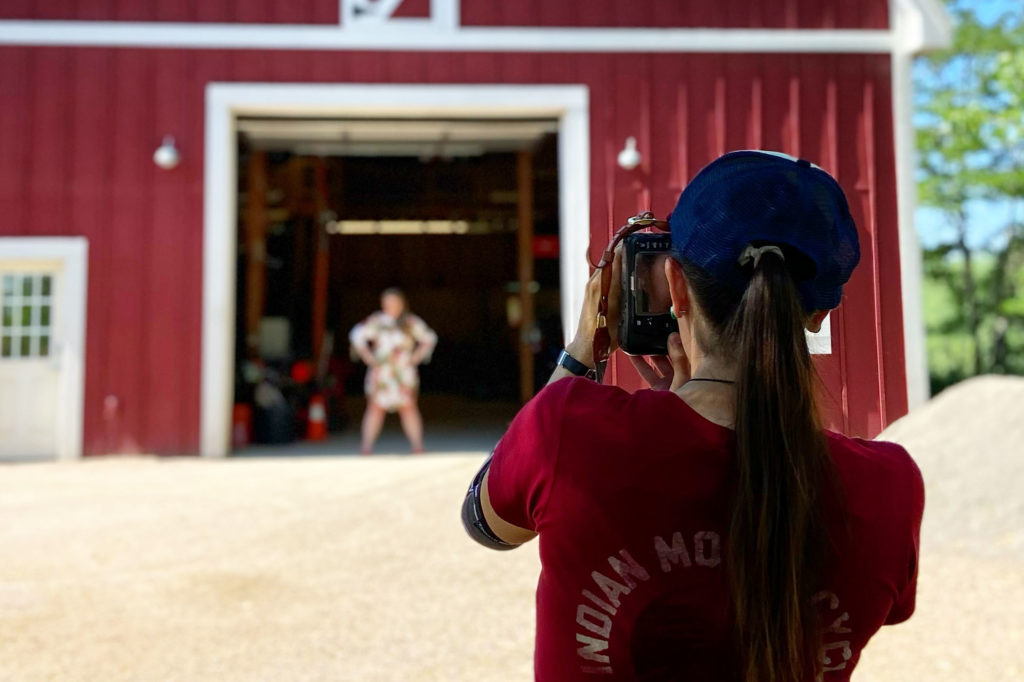
During the project, Trantham also found her calling. “I have been a lifelong entrepreneur,” she said. “I started my first business at 21 and have always tried to create something I care about. My photography career is really what led me to start Ride My Road, and I will always be grateful for that.”
Ride My Road encompasses much more than photographing survivors of trafficking.
“We’re a fundraising organization,” Trantham explained. “We primarily operate within the motorcycle community, and we raise funds and awareness for anti-human trafficking in the United States. We are really proud of all of our programs, whether it be our one-day charity rides, our #SurvivorBike program, or our newly launched Disruptors University. They each provide a different type of impact.”
F.A.S.T. (Fight Against Sex Trafficking) Ride events began in 2017, and they include raffles, speakers, and other activities.
“It is a one-day event to come together and celebrate the motorcycle community, but also do a little bit of education,” Trantham said. “I know it’s a serious topic, which is why it’s actually so nice to partner it with motorcycling. Although what we’re doing can be very dark, there’s also still a lot of joy and triumph in it.”
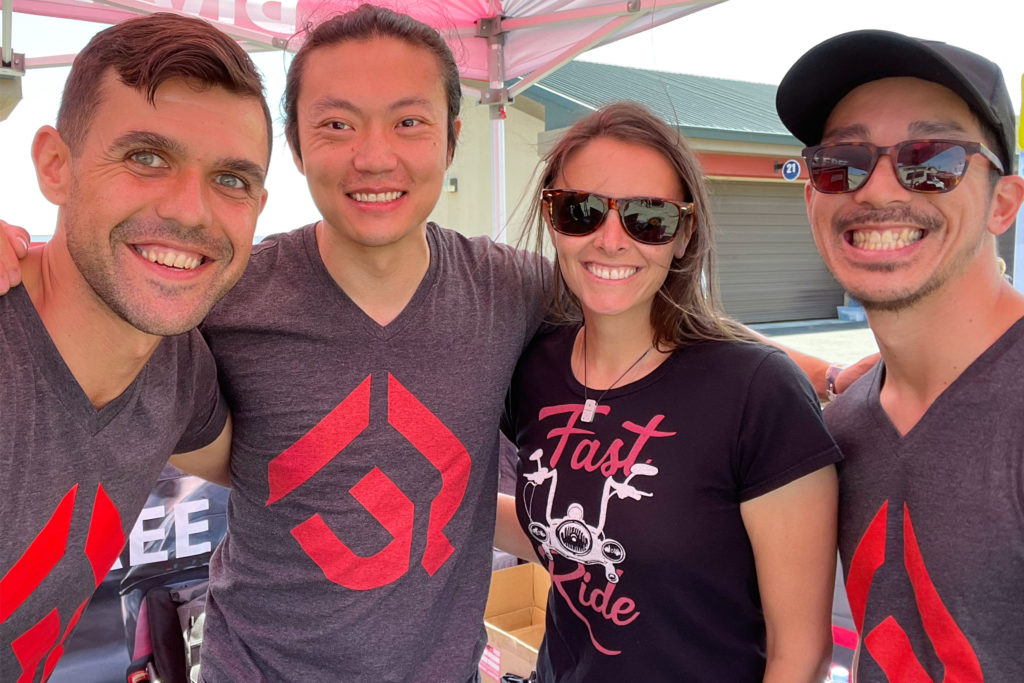
The #SurvivorBike series raises funds for programs that support survivors of human trafficking.
“We take old bikes and restore them, customize them,” said Trantham. “We bring together people from all over the motorcycle industry, and we turn something that’s old and forgotten into something really beautiful. It’s a metaphor for what survivors go through. They’re really marginalized, and there is so much beauty there! We call it ‘pulling the beauty out.’ With the funds that we raise, we turn around and give them back to Elevate Academy to mentor and support survivors.”
Elevate Academy is an online school dedicated to survivors of human trafficking. Students access a self-paced learning platform with curriculum geared for survivors. In addition to classes, there is life and professional development coaching, as well as lifetime access to all the courses for the students.
Rebecca Bender, the founder of Elevate Academy, has a direct relationship with Trantham. “I met with her and she started to explain to me how human trafficking happens in the United States. From there we formed a friendship and a relationship and I partnered with her organization,” Trantham relayed.
Ride My Road is one of at least 15 organizations that partner with Elevate Academy, not including individual donations. The funds and donations that the online school receives enable it to guarantee 100% tuition assistance for students.
Trantham described the qualities that make her so driven to support Elevate Academy: “The program is a 16-week intensive. They learn how to write a resume, how to dress for the workplace, how to dream again, how to tap into what you’re passionate about. They add a lot of value, self-esteem, training for complex PTSD, and life coaches, all within the 16 weeks, with a year follow-up. Really, it’s a lifetime of support.” More information about Elevate Academy and ways you can support it can be found at elevate-academy.org.
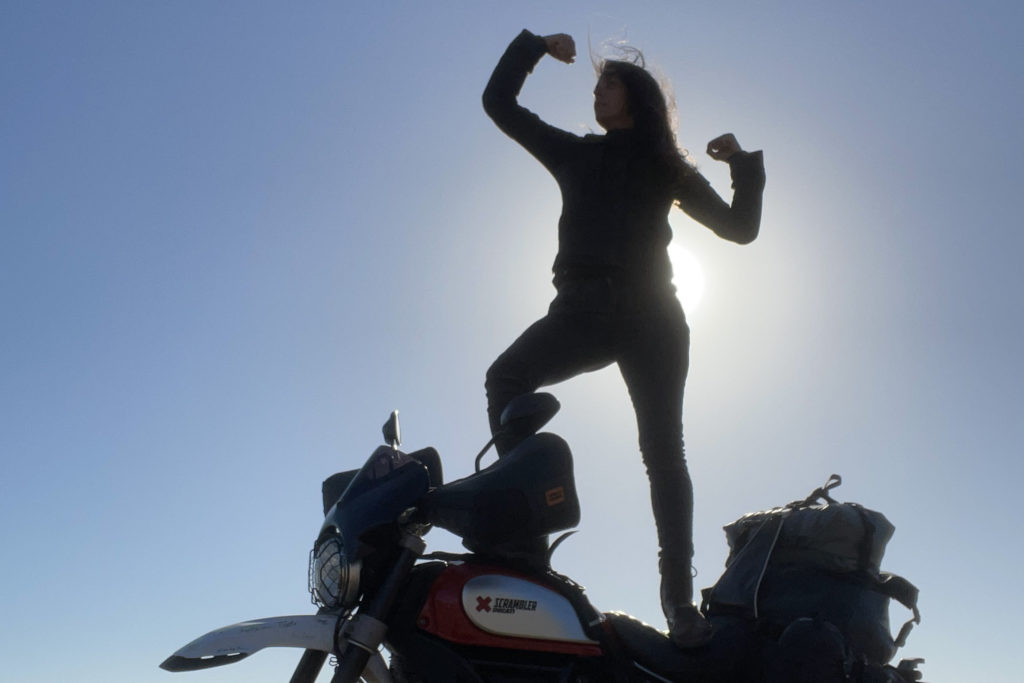
In a similar vein, Disruptors University is a new online program from Ride My Road that tackles human trafficking in a unique way.
“The university was really born out of the pandemic,” Trantham explained. “We had to cancel 14 events, and for our small organization, that was a big deal. At the same time, trafficking was skyrocketing. In the first month of shelter-in-place orders, the Polaris Project saw a 40% increase in crisis calls. We cannot even begin to understand the effects that the pandemic has had on our vulnerable populations.”
The Polaris Project is a nonprofit organization that fights to prevent human trafficking in North America. In addition to providing support through the National Human Trafficking Hotline, the nonprofit is working to build a database that shows how human trafficking really operates, and then create strategies to prevent it from happening based off of the data. To learn more about this organization, visit polarisproject.org.
Instead of resigning herself to the pandemic-related setbacks, Trantham used the time to create the aptly-named Disruptors University.
“Our goal is to disrupt the human trafficking industry through education and fundraising,” she explained. “Anybody can sign up. It’s a three-month university, and we do quarterly classes. We bring on experts and survivor leaders – top-tier people in the movement – to give one-hour classes on different subjects pertaining to trafficking in America. It’s one night a week.”
Education about the reality of human trafficking in America is at the core of Ride My Road’s mission. “Sex trafficking really looks like what we consider prostitution, that’s the largest way it happens, and in the eyes of the law, it’s forced fraud or coercion,” Trantham explained. “We see a lot of situations where people are being trafficked by a ‘loved one,’ or a boyfriend, and it becomes difficult to prosecute, because many people who are trafficked are in love with their traffickers.
“Which again, is why education is so important, because we think of the movie Taken,” Trantham continued. “We think of Liam Neeson coming and kicking down doors, and it’s just not the reality of how it presents in our country. Learning that distinction is very important.”
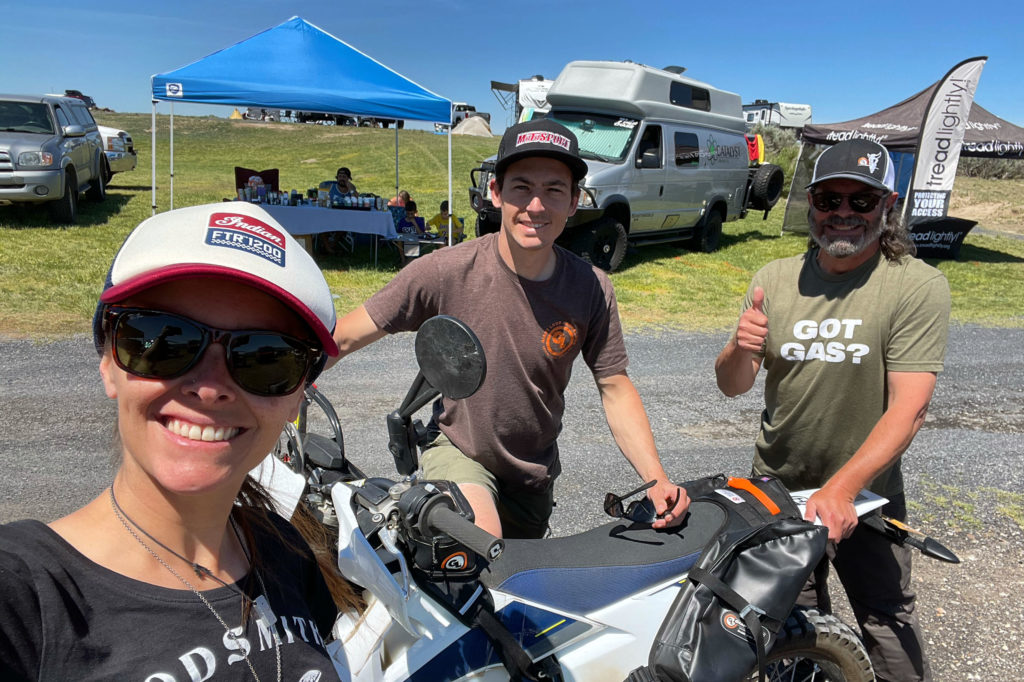
Who the organization educates, other than survivors, is as important as the knowledge they share, and men have become the main focus.
“One of the pillars of Ride My Road is that we celebrate good men,” explained Trantham. “We need men in this movement to step up and talk to their friends about purchasing sex. Statistics are showing that only about 20% of men in America purchase sex, but we’re talking about a billion dollar industry, and growing every year.”
While education is one goal of Disruptors University, fundraising is the other.
“Throughout those three months you learn about fundraising and set your own fundraising goal,” Trantham said. “So that we can raise more funds and support more of these survivor-led organizations.” The university is knowledge combined with action.
Part of this action includes contributing to new survivor causes when possible. “There are so many incredible organizations worthy of support,” Trantham said. “This year, we are also giving funds to organizations that offer economic empowerment/employment programs such as Annie Cannons, which teaches survivors to code and build websites, and The Avery Center, which has a social media management program.”
Trantham understands that her work in this movement is for the long haul. “This topic is not going anywhere fast, so we have to really dig in and build this foundation,” she said. “When we’re talking about changing culture, we have to start with education.”
In terms of Ride My Road’s future, Trantham is planning for “slow, steady growth, and reminding people that you can make a difference,” she said. “You don’t have to be a law enforcement agent or Liam Neeson to make a difference in this movement.”
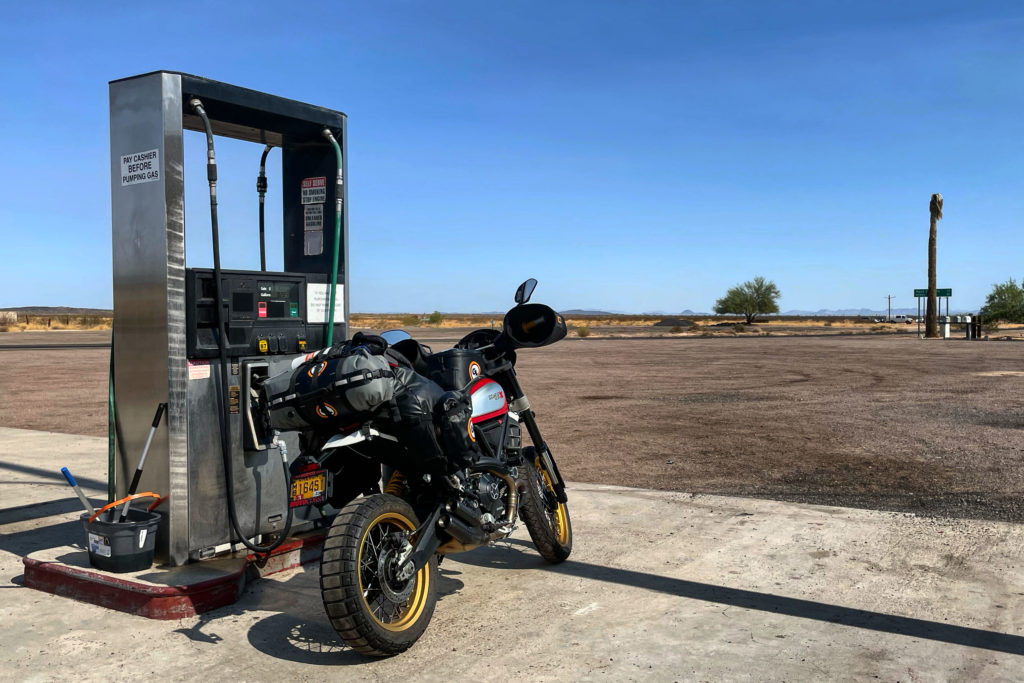
You don’t even have to be a motorcyclist to join Ride My Road. “We have a lot of supporters and donors who do not ride,” Trantham said. “The mission is important for bikers and nonbikers alike. We have families show up to our events in cars! The more the merrier!”
To read more about Lauren and Ride My Road, visit ridemyroad.org and see how you can help.


